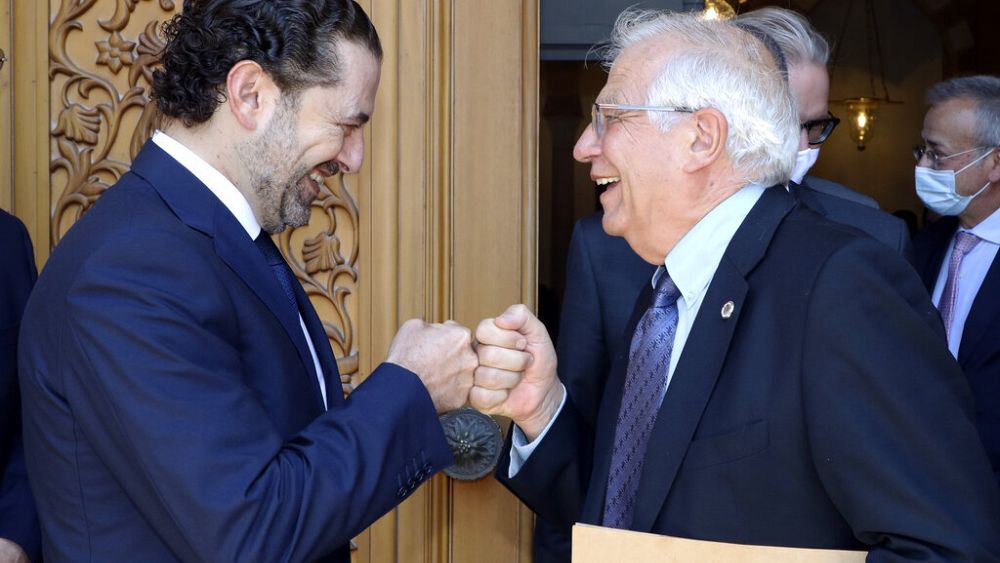The EU”s foreign policy chief has blamed a power struggle and mutual distrust on Lebanon’s ongoing political crisis.
At the close of a weekend-long visit to Beirut, Josep Borrell told reporters that it would be “difficult to get an agreement between people that don’t trust each other”.
On Saturday Borrell, the EU’s high representative for foreign affairs, met with both premier-designate Saad Hariri and President Michel Aoun.
He warned that the EU could impose sanctions on Lebanon if it does not form a new government as a matter of urgency. The previous cabinet was disbanded after the devastating August 2020 explosion at the Port of Beirut.
Lebanon, Borrell warned, was on the verge of “total financial collapse” and the new government should strike a deal with the International Monetary Fund, which could in turn seek EU support.
“A ship in the middle of a storm needs a captain,” Borrell said on Sunday. “It needs officers in different departments. If not, the ship will sink.
“You need a government with technical capacities and political support to implement decisions, take decisions, and these decisions will not be easy to take.”
The deadlock has emerged between Saad Hariri, who was named to the post in October, and President Michel Aoun and his son-in-law Gebran Bassil, who heads the largest bloc in parliament.
The leaders have locked horns over the future shape of government while the country’s economic problems, which began in late 2019, continued to worsen.
According to the World Bank, Lebanon is facing one of the worst financial crises seen in more than 150 years. The country’s economy contracted by more than 20 per cent in 2020 alone while the national currency has lost nearly 90 per cent of its value to the dollar.
Decades of corruption and mismanagement are thought to have fed the crisis. Borrell has blamed Lebanese politicians for “obstructing” the formation of a new government.
Some Lebanese media outlets have reported that France and the EU are putting together proposals for possible travel bans and freezes on the assets of certain politicians.







